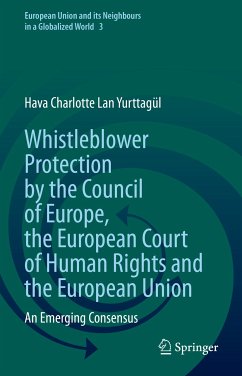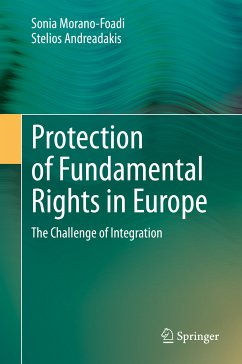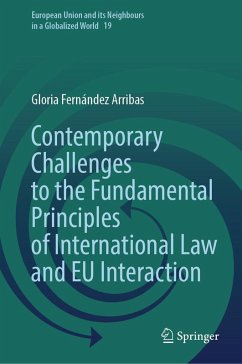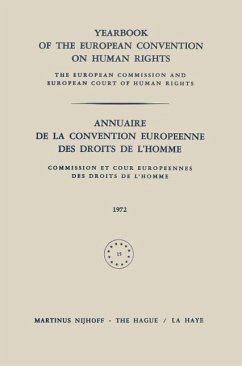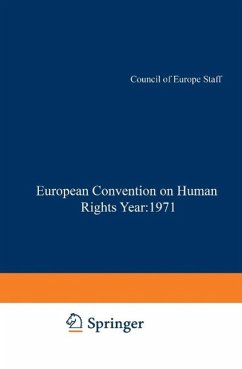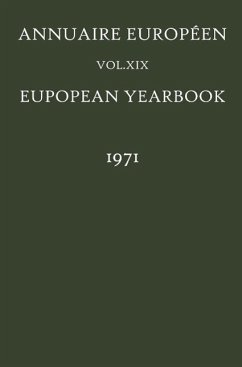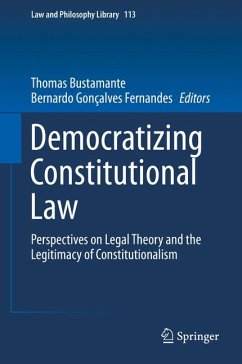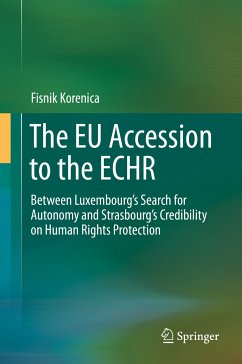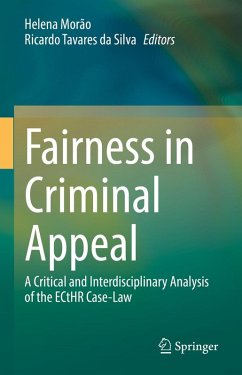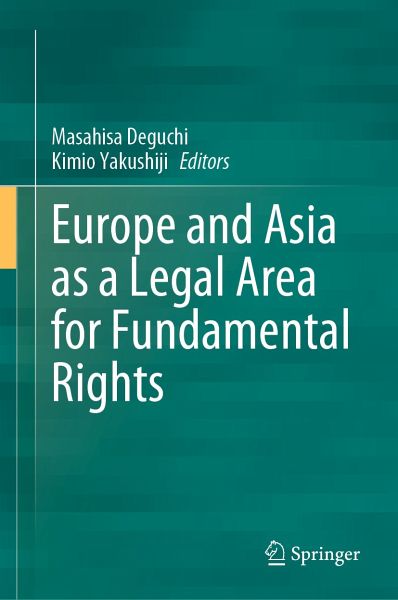
Europe and Asia as a Legal Area for Fundamental Rights (eBook, PDF)
Versandkostenfrei!
Sofort per Download lieferbar
104,95 €
inkl. MwSt.
Weitere Ausgaben:

PAYBACK Punkte
52 °P sammeln!
This book explores the possibility of an Asian legal sphere based on the model of Europe. It features articles written by leading experts from Europe and Asia. After centuries of violent conflicts, Europe began a process of integration which leads to 75 years of peace and a community with the common values of freedom, fundamental rights, and the rule of law. But the circumstances that lead to the unification of Europe differ from current-day Asia: Besides the huge economic gaps between neighboring countries and a wide variety of political forms of government, Asia also does not share the unify...
This book explores the possibility of an Asian legal sphere based on the model of Europe. It features articles written by leading experts from Europe and Asia. After centuries of violent conflicts, Europe began a process of integration which leads to 75 years of peace and a community with the common values of freedom, fundamental rights, and the rule of law. But the circumstances that lead to the unification of Europe differ from current-day Asia: Besides the huge economic gaps between neighboring countries and a wide variety of political forms of government, Asia also does not share the unifying narrative of post-WWII Europe.
From an economic point of view, Asia is a highly developed region; despite the differences between the political systems, the region has grown together-economically and in recent times also politically. However, the legal systems of the respective countries have not created the necessary conditions for a peaceful coexistence. Can Europe be a model for Asia? Based on the history and development of the European unification process, this book asks the question to what extent Asia can look to Europe as a model and what lessons can be learned.
Dieser Download kann aus rechtlichen Gründen nur mit Rechnungsadresse in A, B, BG, CY, CZ, D, DK, EW, E, FIN, F, GR, HR, H, IRL, I, LT, L, LR, M, NL, PL, P, R, S, SLO, SK ausgeliefert werden.



